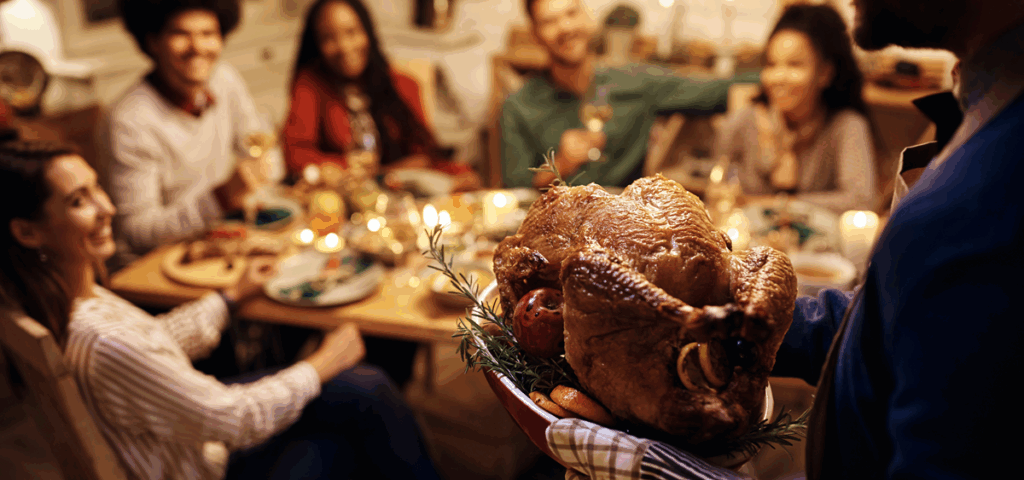Thanksgiving is just around the corner! While it was originally a holiday that celebrated the abundance of harvests, it has now become an occasion for friends and family to gather around a hearty meal. And let’s be honest, stuffed turkey is often the star of the show. But before landing on your plate, this turkey was protected by rules in the law to ensure its welfare. Do you know them?

In 2015, the Quebec government introduced the Animal Welfare and Safety Act. This law put in place many rules to protect animals. Right from the start, the law names some key facts, like the following:
- the human species has an individual and collective responsibility to ensure animal welfare and safety,
- animals are sentient beings that have biological needs.
These acknowledgements show that our society cares for the well-being of animals and their rights. Inspired by the fundamental freedoms developed by the World Organization for Animal Health (WOAH), the Animal Welfare and Safety Act aims to protect animal safety and welfare throughout their lives.
But when it comes to farm animals like turkeys, not all protections in the law apply.
An exception for livestock
The law offers several protections that apply to animals. For example, animals have the right to:
- have access to drinking water and food of acceptable quality and in sufficient quantity,
- the opportunity for adequate exercise,
- be provided with the necessary care when injured, sick or suffering,
- not be abused or mistreated in a way that may affect their health.
However, these obligations don’t apply to animals used for agricultural activities, if these activities are “carried out in accordance with generally recognized rules”. This includes the slaughter or euthanasia of animals meant for consumption.
The “recognized rules” of agricultural activities
The “recognized rules” of agricultural activities aren’t defined in the law. So what exactly are they? To better understand, Quebec’s department of agriculture, known in French as the Ministère de l’Agriculture, des Pêcheries et de l’Alimentation (MAPAQ), refers to the Codes of Practice prepared by the National Farm Animal Care Council (NFACC). These codes present the legal requirements, industry-imposed practices and recommended practices to protect and improve animal welfare.
For example, the Code of Practice for the Care and Handling of Hatching Eggs, Breeders, Chickens and Turkeys covers many topics, such as the transportation of chicks and poults, housing, feeding, stocking densities and protection of bird health.
It’s notably suggested that birds, such as Thanksgiving turkeys, be handled in a way that minimizes stress or injury. They must not be carried only by the head, neck, one wing or tail feathers.
However, these Codes of Practice are only reference documents. Their recommendations don’t create legal responsibilities for agricultural producers.
Some protections
While many rules on animal welfare and safety don’t apply to agricultural animals, some rules in the law apply to all animals, with no exceptions.
For example, the law states that producers cannot transport an animal that would suffer excessively during travel, because of an infirmity, an illness, an injury or fatigue.
In addition, a veterinary surgeon or an agrologist (a professional in agriculture, food, or environmental sciences) who has reasonable grounds to believe an animal is being or has been abused, mistreated or in distress must quickly report it to the MAPAQ. Following such a report, the MAPAQ can name a veterinarian, agrologist or analyst to inspect the situation.
The Canadian Criminal Code also sets out serious penalties for people that voluntarily harm or endangers animals. Sanctions can include hefty fines, or even imprisonment in serious cases.
The law and Codes of Practice therefore set rules to make sure your Thanksgiving turkey has some protections before it ends up on your plate.





